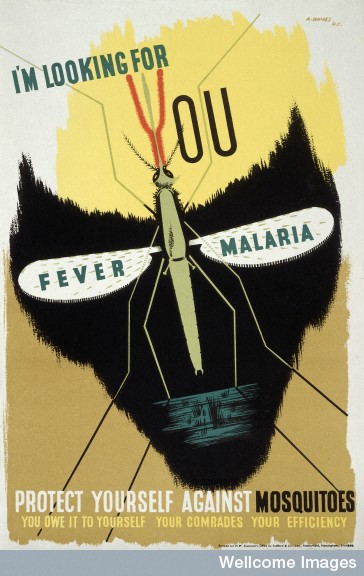

Malaria Webliography
Websites:
Kakkilaya, B.S. [Internet]. [updated 2006 April 14]. Malaria Site: All about Malaria. [cited 2008 September 8]. Available from: http://www.malariasite.com/MALARIA/history_parasite.htm
The History of Malaria Parasite and its Global Spread explores the spread of malaria throughout the world. The overview is interesting in that it follows the parasite’s journey along side human migration. It also examines the parasitic effects on mortality rates through its expansion across the globe. The website contains a timeline that condenses the history providing a helpful visual of the history of malaria. This resource is extremely useful in identifying the relationship between malaria and population rates throughout history in areas other than Africa.
THE GOOD: Easy to read and provided an excellent link between population rates and malaria outbreaks throughout history
THE BAD: It wasn't organized in a way so that the key information could be identified.
Kennedy, Kelly. [Internet]. [updated 2008 August 18]. NASA: Earth System Science Data and Services. [cited 2008 September 8]. Available from: http://nasadaacs.eos.nasa.gov/articles/2005/2005_malaria.html
Kelly Kennedy describes research concerning malaria and its effects done by NASA Earth Science Data and Services. The data collected by Bob Snow demonstrates how the “circle of poverty” is worsened by malaria. Malaria is largely to blame for high infant mortality rates and because of these women have more children in order to increase the probability of survival. This causes a financial strain that further enforces poverty. Kennedy stresses the need for accurate population data so that appropriate resources can be provided to areas most affected by malaria. Malaria by the Numbers provides excellent information on malaria and fully explains how population growth impacts the spread of malaria.
THE GOOD: The information was provided in a interesting way by including examples along with facts. It was easy to understand and follow the points the author was stressing.
THE BAD: There was important information about population growth and malaria but it was not stressed as much as other issues in this article.
Sulaiman, Suad. [Internet]. [updated 2007 August 1]. Science and Developement Network. [cited 2008 September 8]. Available from: http://www.scidev.net/en/opinions/how-is-climate-change-shifting-africas-malaria-ma.html
Suad Sulaiman expresses his opinion about the effect of climate change on the spread of Malaria for the Science Development Network. He explains how climate change has created extended habitats for mosquitoes. The article stresses how degradation of the environment is exacerbated by social and economic pressures due to population growth. Sulaiman describes how problems associated with increasing population such as a depletion of water supplies only promotes the spread of malaria. He emphasizes the importance of gathering social and climatic information across Africa in order to provide tailored treatment options for local malaria outbreaks. Sulaiman’s opinion offers a terrific example of how population growth is linked to climatic and social problems that foster the spread of malaria.
THE BEST SOURCE!
VIDEO!
The Fight against Malaria. [Internet]. [updated 2008]. Health Politics. [cited 2008 September 8]. Available from: http://www.youtube.com/watch?v=2Kt3dcF_KpM&feature=related
The Fight against Malaria, hosted by Dr. Mike Magee, explores the complex issues associated with Malaria. He explains the method of transmission and the damage done by the parasite. Dr. Magee stresses the importance of the impact of poverty on the spread of Malaria. He emphasizes that rapid population growth in sub Sahara Africa escalates poverty and therefore the spread of Malaria. Dr. Magee grabs the viewer’s attention through the use of photos and animated language. He explains the information in a way that those without a background in science will understand. The video provides excellent information about the characteristics of Malaria but does not describe the effects of population growth on the disease as thoroughly.
THE GOOD: It was very interesting and engaging. They provided essential information about the topic!
THE BAD: Most of the video focused on general information about malaria and only a portion of the video was dedicated to population growth and it's impact on malaria.
Release of the first World Malaria Report [Internet]. [updated 2008]. UNICEF. [cited 2008 September 8]. Available from: http://www.youtube.com/watch?v=pWysmnP6sWQ
UNICEF reported on the release of the first malaria world report in a video posted on youtube. The report examined the impact malaria has on human population. The reporter gave statistics on infant mortality and overall death rates in malaria ridden countries. The world report indicated that successful efforts have occurred but there is still much to be done to aid those suffering from malaria. The video stressed that further support is essential in order to control this disease that is both curable and preventable. The report gave key information about the burden of malaria but failed to mention factors such as population growth that elevate the spread of malaria. It is a beneficial source to view in order to gain a background about the impact of malaria.
THE GOOD:The video provide alot of usefull information about the causes and symptoms of malaira. It provided a great background information about malaria
THE BAD: It didn't really have alot of information about the effects of population growth on malaria.

Comments (0)
You don't have permission to comment on this page.